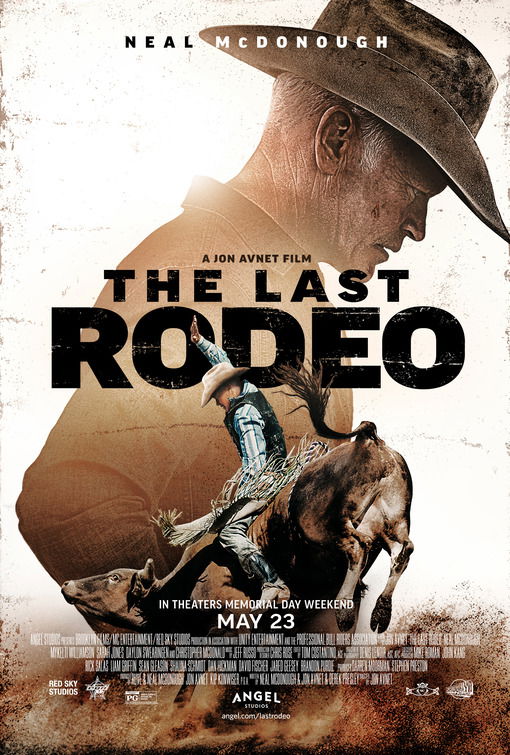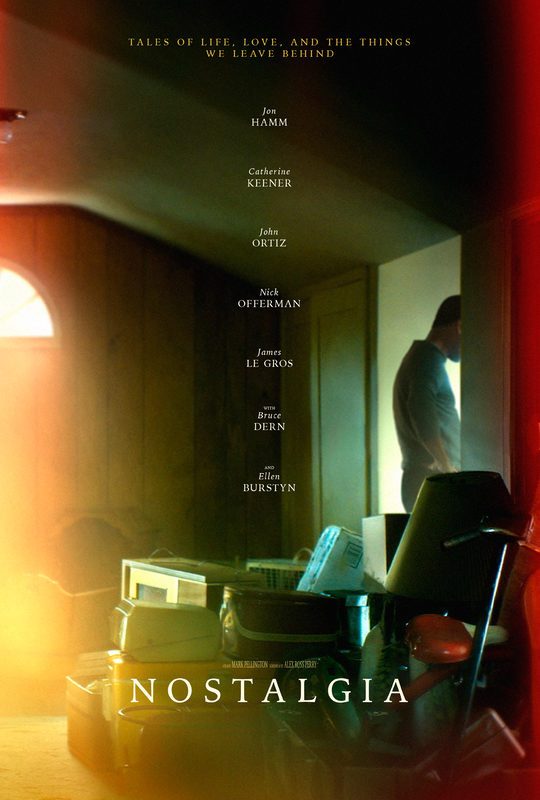“When Loved Ones Pass, Positive Memories Still Remain”

| None | Light | Moderate | Heavy | |
|---|---|---|---|---|
| Language | ||||
| Violence | ||||
| Sex | ||||
| Nudity |
What You Need To Know:
NOSTALGIA is an absorbing character-driven story that focuses on dialogue. The scenes have dim lighting and cloudy days to create a somber tone appropriate for the movie’s subject of death and memory. A white, fuzzy light with soft, angelic music transitions between each sequence to add a hopeful, peaceful, dreamy note. This implies the loved ones may be gone but are at rest now, possibly in Heaven with God. Thus, NOSTALGIA has a light, uplifting Christian, moral worldview. However, there’s some brief foul language, so MOVIEGUIDE® advises strong or extreme caution.
Content:
Light Christian, moral worldview implies there’s an afterlife, a Heaven and a God, but focuses mostly on the idea that memories and objects can help people remember the love and joy they shared with their dearly departed loved ones and can bring the surviving family members and friends closer together, plus all the couples with children in the movie are happily married;
Eight or nine obscenities (including three or four “f” words) and four light profanities;
A violent scene occurs when a mother learns of her daughter’s sudden death and breaks down in tears, pushes her husband away forcefully and jams her hand against the wall;
No sexual content or immorality;
No nudity;
No alcohol;
No smoking or drugs; and,
Light miscellaneous content includes greed and discussion of divorce and death.
More Detail:
The movie begins with a grandmother whose house recently burned down after she forgot to turn the stove off. She rummages through the remains of what is left from the burnt house to find her recently deceased husband’s cherished baseball. She takes the baseball and informs a reporter that her husband always said this baseball would be worth a lot and it was his favorite thing. She holds the baseball for a while, feeling like he is still with her, until she decides to take it to a collector and get the money from it instead.
At a collector’s shop, she meets the storeowner, who is enduring some painful grief as well. His parents have just died, and he’s scheduled to board a plane tomorrow to help his sister clean out their childhood home. He also confesses that, when he poured all his time and attention into getting his store off the ground, his wife of nine years left him. “She fell out of love with me,” he says. Although the ex-wife is still alive, we can see how much pain the loss of this woman has had on his life. The older woman goes back home to her children, who try to help her cope with her grief.
Meanwhile, the storeowner travels back home to his childhood home. He meets his sister, and they begin to go through boxes of old artifacts in the attic. The sister wants to save everything, but the brother wants to give it all away. They agree to keep a few of the items that mean the most to them but give the rest away. While at the house, the sister’s teenage daughter arrives and begs her mom to let her go to her friend’s house instead of cleaning out the house. She says okay.
That evening, the mom is struck with a tragic phone call that her daughter has died in a car crash. The mom is a wreck and breaks down in messy, heart-aching tears. She examines the few photographs she has of her daughter and the artwork her daughter hung up on her bedroom walls. A few days later, the daughter’s best friend sees the parents at a diner. She hobbles over to them with a broken leg, her only injury from the car wreck, and gives them a key chain her daughter bought right before the car wreck. She confesses how sorry she is that she lived and their daughter did not and empathizes with their suffering.
NOSTALGIA is an absorbing character-driven story that focuses on the dialogue between the actors, interspersed with some lyrical, poignant and even insightful images. The scenes take place in dim lighting and on cloudy days to create a somber tone matching the movie’s motif of death lingering throughout the movie. A white, fuzzy light with soft, angelic music transitions between each character’s sequence adds a hopeful, peaceful, dreamy transition implying that the loved ones may be gone, but they are at rest now, possibly in Heaven.
NOSTALGIA has a light Christian, morally uplifting worldview showing that, even after a tragic or sad death, a deep love can still be shared with the dearly departed and among those who survive. Although our loved ones may be gone from this Earth, the memories and objects we have to remind us of them will always be there. The movie also implies that life goes on after death and suggests, through the visual device of the white, peaceful transitional light, that a higher power (perhaps God) is with us after we die. Though these suggestions could have been more overt, and more Christian, they do provide a nice conversation starter for a more detailed, evangelical discussion about God, Jesus and the concept of an afterlife.
Besides the scenes of tragedy and death, including the scene of the mother crying, NOSTALGIA has several “f” words and some other, more minor foul language. So, MOVIEGUIDE® advises strong caution. The foul language in NOSTALGIA could have easily been reduced to get this movie a PG-13 or even a PG rating to make it more accessible to a family audience.


 - Content:
- Content: 




